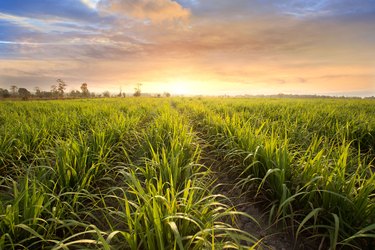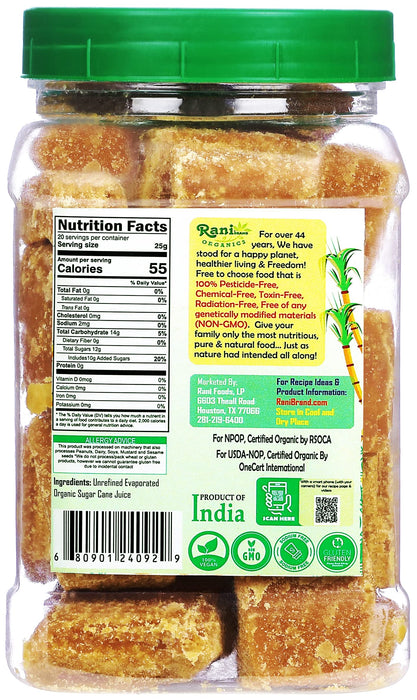Understanding the Manufacturing of Sugarcane Product for Buyers
Understanding the Manufacturing of Sugarcane Product for Buyers
Blog Article
Discovering Sugarcane Products: Versatile Benefits and utilizes
The expedition of sugarcane items discloses an amazing array of applications that expand well past the familiar world of sugar. As we analyze the multifaceted payments of sugarcane, one might wonder exactly how these varied uses can reshape sectors and lifestyles in a swiftly advancing globe.
Review of Sugarcane
Although sugarcane is frequently linked mostly with sugar production, it is a versatile plant with a rich background and numerous applications. Grown in subtropical and exotic regions, sugarcane prospers in well-drained soils and warm environments, adding substantially to numerous economic situations worldwide. This perennial grass, coming from the category Saccharum, can grow to elevations of up to 4 meters, showcasing its robust nature.
Past its primary duty in sugar extraction, sugarcane works as an essential source for different by-products. The fibrous deposit, referred to as bagasse, is used for creating bioenergy and as a raw material for making paper and naturally degradable products. Additionally, molasses, a by-product of sugar refining, is abundant in nutrients and frequently used in animal feed and fermentation processes.
Sugarcane also plays a substantial role in traditional medications and social techniques in several regions, illustrating its significance beyond industrial use (sugarcane product). With the increasing focus on lasting farming techniques, sugarcane is being checked out for its capacity in biofuels and carbon capture, positioning it as a key player in the change in the direction of sustainable energy sources. Thus, the versatility of sugarcane expands much past the confines of sugar production
Sugarcane in Food Products


Beyond sugar, sugarcane is the source of energy-rich items such as jaggery and panela, which are conventional unrefined sugars utilized in many societies. These products not just sweeten foods but additionally impart dietary advantages and special tastes.
Sugarcane juice, a rejuvenating drink enjoyed in several tropical regions, showcases the plant's versatility. It is commonly eaten fermented or fresh into alcoholic beverages like rum.
Additionally, sugarcane fibers, called bagasse, are in some cases made use of to create food packaging products, emphasizing the environmental advantages of sugarcane handling. In general, sugarcane's payment to food is multifaceted, improving tastes, giving nutritional value, and playing a considerable duty in culinary traditions worldwide.
Industrial Applications of Sugarcane
In numerous industries, the flexibility of sugarcane prolongs much past its cooking applications. Sugarcane acts as a vital basic material in the production of biofuels, especially ethanol, which is progressively made use of as a renewable resource source. This biofuel is obtained with fermentation and distillation procedures, supplying a lasting choice to fossil gas and adding to a reduction in greenhouse gas emissions.

Moreover, the sugarcane sector has actually located applications in drugs, where its elements are utilized in the formula of various medicinal products. The all-natural substances drawn out from sugarcane display antimicrobial and antioxidant residential properties, improving the effectiveness of certain medications.
Last but not least, sugarcane is indispensable to the production of a variety of chemicals, consisting of glycerol and organic acids, which are essential for numerous industrial processes. These applications highlight sugarcane's substantial function in promoting commercial sustainability and technology.
Ecological Benefits of Sugarcane
The complex applications of sugarcane not just enhance commercial procedures but additionally add considerably to environmental sustainability. As an eco-friendly source, sugarcane cultivation that site plays an essential function in carbon sequestration, absorbing significant amounts of carbon dioxide from the ambience. This process aids alleviate climate adjustment by decreasing greenhouse gas focus.
Additionally, sugarcane byproducts, such as bagasse and molasses, use environment-friendly alternatives to traditional materials. Bagasse, the coarse deposit after juice extraction, can be made use of as a biomass fuel, lowering dig this reliance on fossil gas and promoting cleaner power resources. Furthermore, molasses can be changed into bioethanol, even more supporting sustainable power efforts.
Sugarcane farming likewise promotes biodiversity and dirt health. Lasting agricultural methods, such as intercropping and plant rotation, improve dirt fertility and reduce disintegration. The plant's deep root system aids in water retention, consequently enhancing and sustaining neighborhood ecosystems durability against dry spell.
Wellness Advantages of Sugarcane
Rich in important nutrients and natural sugars, sugarcane offers numerous health advantages that make it a useful enhancement to a well balanced diet regimen. Its high fiber web content help in digestion, promoting gut health and avoiding constipation. that site Additionally, sugarcane gives antioxidants, which combat oxidative tension and may decrease the risk of chronic diseases.
Furthermore, sugarcane juice is recognized for its hydrating homes, making it an exceptional drink option, particularly in hot climates. The all-natural sugars existing in sugarcane supply a quick energy increase, valuable for professional athletes and those taken part in physical activities. It also contains essential vitamins and minerals, such as vitamin C, potassium, magnesium, and calcium, which add to general health.
Studies recommend that sugarcane might aid regulate blood sugar degrees, making it a preferable sweetener for individuals with diabetes when eaten in moderation. Its anti-inflammatory homes can support liver wellness and aid in detoxing.
Conclusion
Finally, sugarcane emerges as a very flexible plant with considerable payments to different fields. Its diverse applications in food products, industrial usages, and environmental sustainability highlight its importance. The spin-offs of sugarcane, such as bagasse and molasses, facilitate green methods, while its wellness benefits improve total well-being. The diverse nature of sugarcane not just supports economic development but likewise advertises sustainable advancement, highlighting its worth in contemporary society.
Although sugarcane is typically linked largely with sugar production, it is a versatile crop with a rich history and many applications.Past its key role in sugar extraction, sugarcane serves as an important source for different byproducts. Mainly recognized for producing sugar, sugarcane is transformed into granulated sugar, brownish sugar, and molasses, each offering distinctive culinary functions.Rich in natural sugars and essential nutrients, sugarcane supplies various health and wellness benefits that make it an important addition to a balanced diet. The all-natural sugars present in sugarcane supply a fast energy boost, beneficial for professional athletes and those involved in physical activities.
Report this page